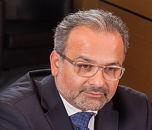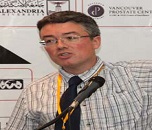Renowned Speakers

CA©dric Wernli
University of Applied Science and Arts Switzerland

Speaker Qing Xia
National Center of Biomedical Analysis China

Quinteros M A
CONICET Argentina Argentina

Wei Zheng
Purdue University, USA

Christian Bjerregaard-Olesen
Aarhus University Denmark

Pierre Eftekhar
Inoviem Scientific France

Christopher Dalton
Defence Science and Technology Laboratory UK

Lucija Peterlin MaÅ¡iÄ
University of Ljubljana Slovenia
Recommended Global Environmental Sciences Webinars & Conferences
Europe & UK
Asia Pacific & Middle East
Canada
Toxicologycongress-2026
To Collaborate Scientific Professionals around the World
Conference Date September 28-29, 2026
For Sponsors & Exhibitors
Speaker Opportunity
Useful Links
Past Conference Report
Supported By
All accepted abstracts will be published in respective Conference Series International Journals.
Abstracts will be provided with Digital Object Identifier by
